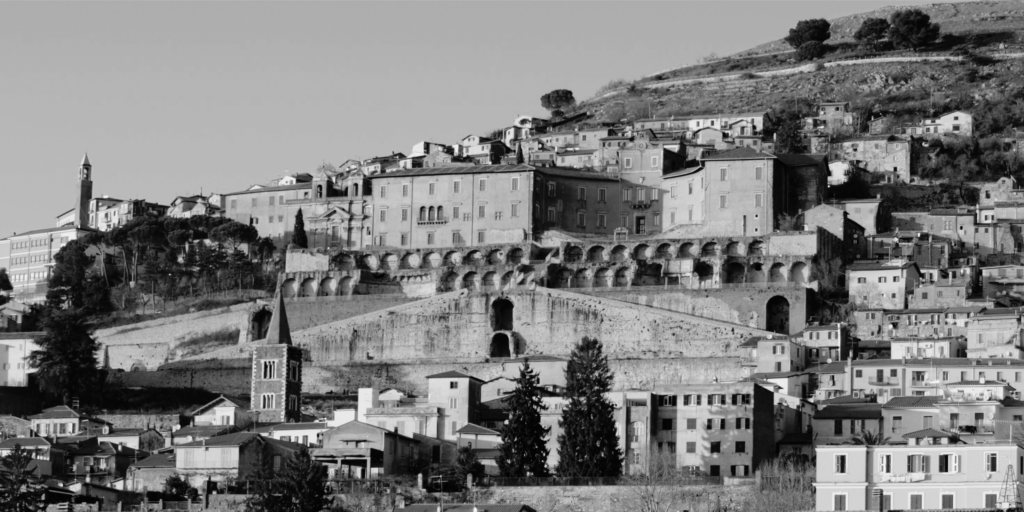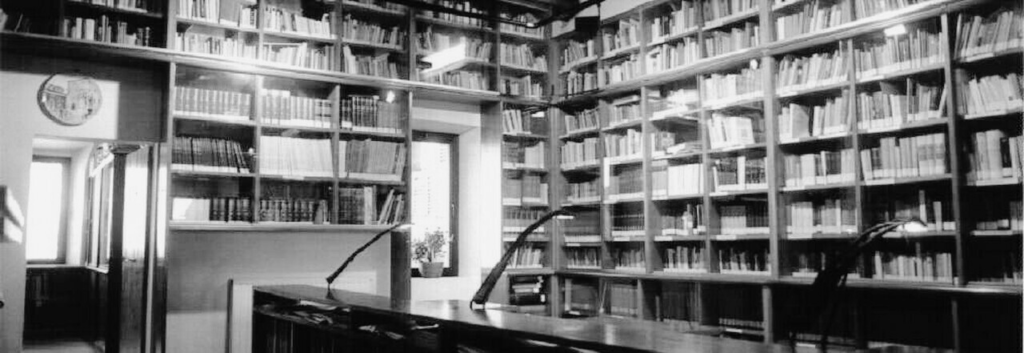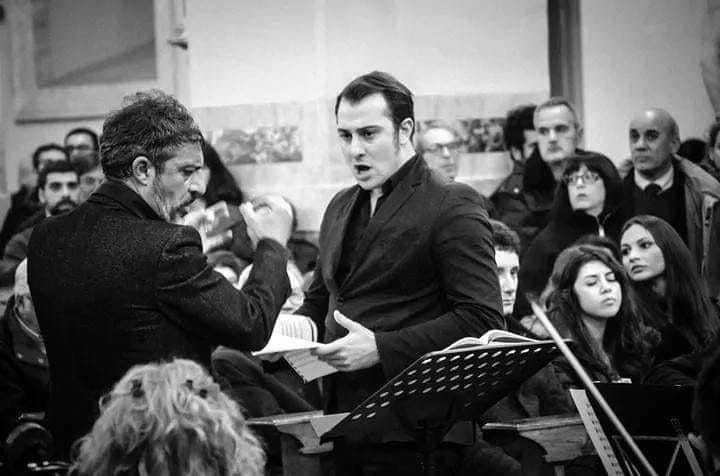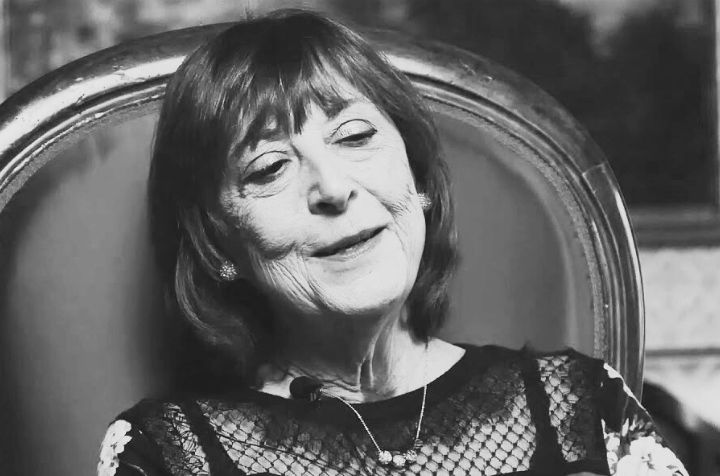
PALESTRINA
Polysonica parte dall’Italia, da Palestrina, una cittadina in provincia di Roma. Per essere più precisi, parte da un suo cittadino illustre, il Principe della Musica, Giovanni Pierluigi da Palestrina.
Il percorso di Polysonica inizia da uno degli artisti più importanti del Rinascimento Italiano ed Europeo e la storia che si vuole raccontare non è quella della musica polifonica di cui lui è considerato tra i massimi esponenti, o perlomeno non solo quella. Si vuole esplorare la ricerca, la scoperta e l’innovazione della composizione e della produzione musicale attraversando le porte che questa continua innovazione ed evoluzione ha aperto e aprirà per le generazioni future di musicisti ed ascoltatori. Attraversando queste porte, Polysonica parte dal passato per per presentare la musica elettronica moderna, dai suoni ambient immersivi a quelli più sperimentali.
Abbiamo scelto la città di Palestrina per via dei suoi legami con quello che da molti colleghi illustri è considerato uno dei padri della musica moderna, ma il lavoro di memoria e di ricerca sul Palestrina non e’ un lavoro che spetta a Polysonica né ci si vuole appropriare di questo ruolo.
Polysonica guarda al futuro e seppure si parte dalle origini della musica polifonica, non vorremmo mai sostituirci alle organizzazioni che da decenni portano avanti lo studio, la ricerca, la conservazione e la diffusione del passato e della memoria di artisti come Il Palestrina e i suoi colleghi autorevoli che si sono susseguiti nel corso dei secoli in giro per il mondo.
Associazioni e Fondazioni come il Coro Polifonico Città del Palestrina, diretto dal M. Maurizio Sebastianelli e la Giovanni Pierluigi da Palestrina Foundation - fanno proprio questo, ed è grazie al loro lavoro decennale che eventi come Polysonica possono guardare al futuro partendo e attingendo dal passato.
They are two of the main partners of this first series of events under the Polysonica brand and we want to present them to you in the best possible way, telling you about their history and their work, past, present and future.
FONDAZIONE GIOVANNI PIERLUIGI DA PALESTRINA

La Fondazione Giovanni Pierluigi da Palestrina – nata nel - January 1973 – è un’istituzione culturale nota a livello regionale, nazionale e internazionale grazie dell’ampio programma di iniziative. È inoltre apprezzata sia per gli approfondimenti sulla figura e l’opera di uno dei più grandi compositori della nostra storia, sia per il lavoro di valorizzazione – in un contesto di studi e di ricerche interdisciplinari – della Italian music of the Renaissance period..
Born on the spur of a proactive and forward-looking fervor, the Foundation was able to enjoy within itself the work of enlightened personalities, who dedicated to it the artistic and operational energies necessary to give it a wide-ranging institutional structure. This is proven by the recognitions received from many Italian and European universities with which the institution maintains profitable exchanges, the academies and foundations and sister musical and artistic associations, but, above all, the Italian State, the Lazio Region, the Province of Rome and the Municipality of Palestrina .
These entities, with the inclusion of the Palestrina Foundation in the list of institutes to be supported for the recognized cultural value and preciousness of its historical, book and study heritage, wanted to demonstrate their appreciation and grant it support for an increasingly I live the cultural and scientific progress of the Foundation. In January 2013, on the occasion of the 40th anniversary of its establishment, the Palestrina Foundation received the medal of the President of the Republic, sen. Giorgio Napolitano.
For the knowledge and diffusion of Palestrina's music, of polyphony in general and, above all, for an exact use and study of ancient vocality, the Foundation has promoted, in Palestrina and in Italy, hundreds of concerts, with highly qualified ensembles and professionalism and with amateur choirs from all over the world, making the most of this kind of initiative, precious for musical and social life.
Courses and seminars on musicology and the vocal arts have represented the didactic basis of a vast panorama of initiatives which have involved schools, associations, concert organizations and the world of culture in general.
The consensus of the world of officialdom and studies for the initiatives promoted by the Foundation was particularly strong especially on those congress occasions in which specialists from all over the world were called to Palestrina and Rome to report on the most recent discoveries relating to the style of Composer and contemporary musicians, sources and historiographical exegesis. Three congresses (1975, 1986 and 1994) dedicated to "Palestrina and Europe", conferences dedicated to the Baroque heritage of the Palestrinian style (Conference on Francesco Foggia - 1988; Conference on Ruggero Giovannelli - 1992 and Conference on Orazio Benevoli - 2019) they have catalysed, in addition to the world of specialists, even the youngest Italian musicology to come out of our country's universities and conservatories. To these appointments were added the study days dedicated to the "Protagonists and masterpieces of the Roman School" (2002) and "Palestrina and Orlando di Lasso" (2008).
The fruits of the congress work, as well as the conspicuous and precious work of the bibliographic-musical research on Palestrinian sources (the complete census of the manuscripts and printed editions existing in public and private libraries is underway and the collected material is available to scholars and connoisseurs in the Foundation's archive on magnetic, paper and digital supports) can be found in the qualified publishing sector of the Foundation, a catalog full of monographs and documents of prestigious scientific importance, often requested from all over the world.

L’assetto istituzionale della Fondazione, consolidatosi con l’assegnazione nel 1994 – da parte dello Stato – della Casa Natale del Compositore completamente restaurata, ha avuto una ulteriore “messa a punto” grazie all’acquisizione di una importante biblioteca musicologica specializzata, annoverante diverse centinaia di edizioni del Cinque, Sei e Settecento, oltre a più di diecimila volumi di cultura musicale, che contribuisce a connotare la Fondazione come punto di riferimento, a livello non solo regionale, per gli studi e la ricerca musicali in genere, e per la catalogazione e l’inserimento nel Servizio Bibliotecario Nazionale.
The house-museum is kept open for six days a week and is a destination for specialists and enthusiasts; the structure has been the "protagonist" of documentaries dedicated to the composer of the BBC, the Radio Television of Italian Switzerland and other Italian broadcasters. It has hosted exhibitions of painting, sculpture and photography and, in the open-air auditorium, initiatives of the municipal body and other cultural associations.
In 1998 the Foundation requested the Ministry of Cultural Heritage and Activities to study and publish a national "critical" edition of the works of Giovanni Pierluigi da Palestrina. With a decree dated 2 June 1999, the Ministry accepted the proposal with the appointment of a scientific committee, chaired by prof. Giancarlo Rostirolla, artistic director of the Foundation itself.
Con decreto n. 27/2001 della Regione Lazio, la Fondazione ha ottenuto l’iscrizione nel registro regionale delle persone giuridiche private. Dal 2002 è inserita nell’Albo degli istituti culturali regionali.
In definitiva, la Fondazione è giunta ora ad un livello di notorietà e specializzazione tale da collocarla tra i più prestigiosi centri di cultura specialistica. L’istituzione palestriniana, forte delle esperienze cinquantennali acquisite, proseguirà a svolgere un’attività sempre più intensa, nell’alveo degli scopi fissati all’art. 2 del proprio statuto, per una valorizzazione sempre maggiore della figura e dell’opera di Giovanni Pierluigi da Palestrin
CORO POLIFONICO CITTÀ DEL PALESTRINA

The "Città del Palestrina" Polyphonic Choir Association was born in 1985 with the support of the Giovanni Pierluigi da Palestrina Foundation Palestrinian Studies Center, the Municipality of Palestrina and the Banca Centro Lazio Credito Cooperativo in order to enhance and disseminate polyphonic music, the more authentic and internationally recognized Prenestino culture. The very name of the association is a tribute to the Prince of Music Giovanni Pierluigi da Palestrina.
In almost forty years of life, the Choir has performed over 400 concerts enjoying success both in Italy and abroad, has successfully participated in the Festival dei Due Mondi in Spoleto, has performed numerous recordings on behalf of RAI Radiotelevisioneitaliana, the Mediaset networks, of the BBC and of the Bayerische Rundfunk of Munich BR, TV2000, has produced CDs of polyphonic music and holds concert-lessons in schools and vocal education courses.
The Association proposes, through the concert activity and through the teaching activity, to make known and value the polyphony of every era and to spread choral singing, especially among young people, emphasizing the strong cultural and human value of make music together.
The Polyphonic Choir has spread Palestrinian music in Italy and abroad, receiving considerable recognition. It also fulfills a social function by aggregating many young people from different social and cultural backgrounds into the choir. Today it has about 40 elements.
The association has also given its willingness to manage the Scholae cantorum of the school complexes in the area.
The choir's repertoire has over 90 pieces of sacred and secular music by many authors including: G. P. da Palestrina, T. L. da Victoria, R. Giovannelli, Ch. de Morales, O. di Lasso G. Giorgi, A. Part, C Orff, F. Handel, F.J. Heydn, F. Martin, M. Baumann, D. Bartolucci, M. Sebastianelli, A. Vivaldi. J.S. Bach, Mozart, G.B. Pergolesi, T. Albinoni and G. Platti.
CECILIA CAMPA

Cecilia Campa, già titolare della cattedra di Musicologia sistematica presso il Conservatorio Santa Cecilia di Roma, è membro della Direzione Artistica della Fondazione Giovanni Pierluigi da Palestrina e della International Academy of History of Science. Visiting Professor in università italiane e all’estero è stata coinvolta in progetti di ricerca europei su tematiche storico-musicali interdisciplinari. Negli ultimi decenni si è concentrata su aspetti di Estetica e Filosofia della Musica e di storia delle idee musicali attraverso la teoria della musica e la storia dell’acustica. È autore di numerosi saggi pubblicati in ambito nazionale e internazionale e delle monografie: Il musicista filosofo e le passioni. Linguaggio e retorica dei suoni nel Seicento europeo (Napoli, Liguori, 2001), La repubblica dei suoni. Estetica e filosofia del linguaggio musicale nel Settecento (Napoli, Liguori, 2004), Furori e armonie. Utopie della musica antica nella tradizione umanista (Napoli, Liguori, 2009), Sidereus sonus. Musica come meteafisica da Delfi ai Moderni (Palestrina, Fondazione Giovanni Pierluigi da Palestrina, 2021)
